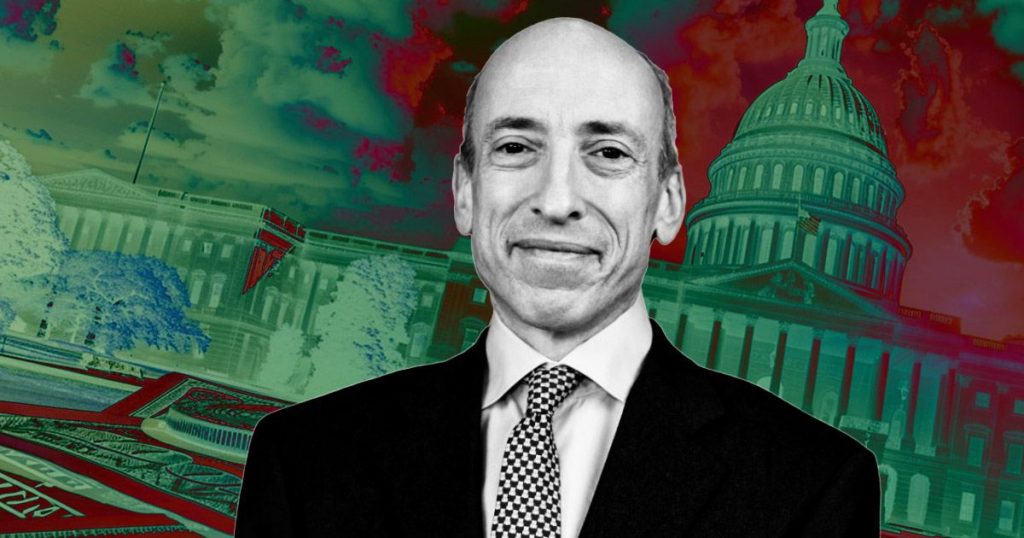SEC Chair Gensler Opposes FIT21 Vote, While White House Urges No Veto

In a surprising twist in the regulation of financial technologies, SEC Chairman Gary Gensler has publicly opposed the recent FIT21 vote, an event that has sparked significant discussion within financial and regulatory circles. Despite this opposition, the White House has taken a stance against vetoing the decision. This article delves into the complexities of this situation, analyzing its implications for the financial industry and broader regulatory environment.
Overview of the FIT21 Vote
What is the FIT21 Vote?
The FIT21 (Financial Innovation Transparency for the 21st Century) Act is a legislative measure aimed at providing clearer guidelines for financial technology operations and their regulatory expectations. The act was designed to encourage innovation while ensuring that the fast-paced fintech sector remains within manageable bounds of risk.
Key Provisions of the FIT21 Act
- Transparency Requirements: Enhancing the transparency of fintech operations to regulators and the public.
- Regulatory Clarity: Providing a clearer legal framework for fintech companies to operate within.
- Innovation Promotion: Encouraging technological advancements in the financial sector by reducing bureaucratic hurdles.
SEC’s Stance Against the Vote
Gensler’s Concerns
Chairman Gensler has voiced concerns that the FIT21 Act may be too lenient, potentially paving the way for increased risks in the financial system. His main issues with the act include:
- Insufficient Oversight: Lack of robust oversight mechanisms to monitor fintech activities.
- Risk to Financial Stability: Potential threats to the overall stability of the financial system due to unregulated innovations.
- Consumer Protection: Inadequate safeguards for consumer protection against fintech-related risks.
Implications of Gensler’s Opposition
Gensler’s opposition is significant as it highlights a rift within regulatory bodies about how best to balance innovation with risk management. His stance could influence future regulatory approaches and legislative measures related to financial technologies.
White House’s Position: No Veto Suggested
Despite the SEC’s reservations, the White House has advised against vetoing the FIT21 Act. This position suggests a broader governmental support for innovation in the financial sector, even at the risk of potential regulatory challenges.
Reasons Behind the Non-Veto Stance
- Economic Growth: Supporting fintech innovations as a driver of economic growth.
- Global Competitiveness: Maintaining the U.S.’s position as a leader in the global fintech industry.
- Regulatory Adaptation: Belief in the ability of regulatory frameworks to adapt to new technologies.
Analyzing the Impact on the Financial Sector
The contrasting views between the SEC and the White House set the stage for a nuanced debate on the future of financial regulation. This section explores the potential impacts of the FIT21 Act on various stakeholders.
For Fintech Companies
- Increased Operational Freedom
- Potential for Enhanced Innovation
For Regulators
- Challenges in Monitoring Innovations
- Need for Adjusted Regulatory Tools
For Consumers
- Benefits from Enhanced Financial Services
- Risks from Reduced Oversight
The opposition of SEC Chair Gensler to the FIT21 vote, contrasted with the White House’s recommendation against a veto, underscores the complex dynamics at play in the regulation of financial technologies. As the landscape evolves, stakeholders must navigate these waters with a careful balance of innovation and risk management.
FAQs
- What is the FIT21 Act? The FIT21 Act is legislation designed to foster innovation in the financial technology sector by providing clearer regulatory guidelines and promoting transparency.
- Why did SEC Chair Gensler oppose the FIT21 vote? Gensler opposed the FIT21 vote due to concerns over insufficient oversight, potential risks to financial stability, and inadequate consumer protections.
- What was the White House’s stance on the FIT21 vote? The White House advised against vetoing the FIT21 Act, highlighting its support for fostering economic growth and innovation in the fintech sector.
- How might the FIT21 Act affect fintech companies? The FIT21 Act could grant fintech companies more freedom to operate and innovate, though it also presents challenges in ensuring adequate regulatory oversight.
- What are the potential consumer impacts of the FIT21 Act? Consumers might benefit from improved financial services but also face risks from potentially reduced regulatory oversight.





